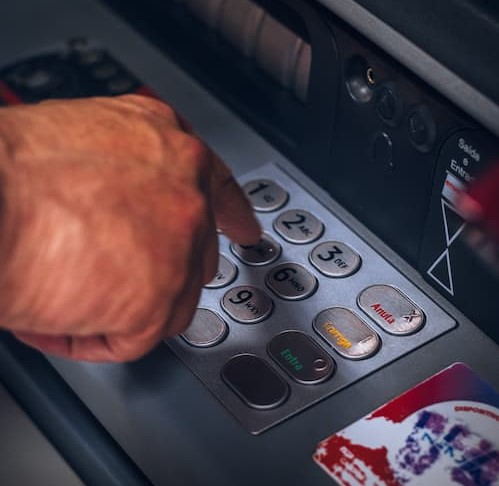Dealing with Frozen Bank Accounts

Navigating the complexities of frozen bank payments or closed accounts can be a daunting task. At Sterling Law we specialize in helping individuals and companies resolve these issues efficiently and effectively. In this article, we shed light on the challenges posed by frozen accounts and the solutions we offer to unfreeze your funds. Also we’ll consider why banks freeze accounts and what to do if your bank account is blocked.
Why do banks freeze accounts?
A UK bank account freeze can happen for a variety of reasons. Here are a few possible circumstances that could lead to this issue:
- Enforcement proceedings. If a court judgement obliges the customer to pay a certain amount, the bank may freeze the account to enforce the judgement.
- Insolvency or bankruptcy. In case of insolvency or bankruptcy of the client, the bank may freeze the account to prevent further financial transactions.
- Failure to comply with the terms and conditions of the agreement with the bank. If the client fails to comply with the terms and conditions of the agreement with the bank, for example, exceeding the credit limit or failing to fulfil other obligations, this may result in the freezing of the account.
- Filing a complaint or requesting a freeze. In some cases, customers can request an account freeze themselves, for example, if they lose their bank card or suspect unauthorised access to the account.
- Suspicion of fraud or criminal activity. If a bank detects suspicious activity on an account that may be linked to fraud, money laundering, or other criminal activity, it may freeze the account for further investigation. The user who can say, that maybe the bank closed my account for suspicious activity, usually has some prerequisites. If you don’t, also don’t worry.
- Failure to fulfil identity verification requirements. Banks are required to implement customer identity verification procedures in accordance with anti-money laundering and counter-terrorist financing legislation. If the customer fails to provide the required information or does not meet the requirements, the bank may freeze the account.
- Non-payment of taxes. Freezing of an account may occur in case of non-payment of taxes or violation of tax laws.
Consequences of a frozen bank account
The consequences of freezing a bank account can be significant and affect a client’s financial situation. First and foremost, a frozen account means that the client is temporarily prevented from accessing their funds. This can cause serious inconvenience, especially if the customer relies on the account to make daily transactions or payments.
The second relates to possible financial loss. A frozen account may result in the inability to conduct transactions, pay bills, or withdraw money. The customer also may face penalties and additional costs if it is not possible to fulfil financial obligations because the bank account is frozen.
Can money be paid into a frozen bank account? Such an operation is usually not possible. The bank blocks all debit and credit transactions on the frozen account to prevent additional financial losses or misconduct. Transferring money to the frozen account will be denied until the account is unlocked. In most cases, the customer must first resolve the issue that led to the freeze and then request the bank to unblock the account in order to be able to conduct financial transactions.
The immediate fallout of a frozen account is undeniable: a sudden inaccessibility to your funds. In such situations, the prime directive should be to engage a specialist solicitor at the earliest. A frozen account doesn’t just entail monetary setbacks. From immense personal distress to potential business interruptions and the looming threat of unsettled dues, the ripple effects are significant.
But what does this imply for you? Sterling Law’s team elucidates what lies ahead for those with a frozen account and the steps to alleviate its repercussions.
The underpinnings of the investigation
When a bank suspects an account is involved in illegal activities, they are mandated to submit a suspicious activity report (SAR) to the National Crime Agency (NCA). This can result in the account being temporarily frozen, interrupting regular transactions like bill payments and standing orders.
Upon receiving the SAR, the NCA has a week to decide on a course of action: extend the investigation duration or release the account from its frozen status. In most cases, they opt for a lengthier investigation. If the NCA chooses to extend, they get an additional 31 days for a thorough investigation. Throughout this period, the bank remains silent, withholding any related information from the account holder.
Interestingly, bank officials risk a severe penalty—a potential five-year imprisonment—for revealing to customers that their account has been frozen or the reason behind it. This policy is part of the Proceeds of Crime Act 2002, aiming to prevent “tipping off”. Consequently, this secrecy often results in confrontations between the bank and its clients.
If the investigation finds potential unlawful use of the account, the NCA will approach the Magistrates Court to secure an account freezing order (AFO). This order, once sanctioned, will be shared with the account holder, offering insights into the ongoing situation.
The ability to enact these AFOs stems from the Criminal Finances Act 2017. It grants authorities the power to freeze accounts—including those in building societies—for as long as two years during investigations. Surprisingly, an AFO can be imposed on accounts with as little as £1,000. Post the initial probe, the NCA often transfers the case to local police for further examination.
For an AFO to be granted, the Magistrates Court needs substantial reasons to believe the funds either came from criminal activities or are earmarked for such purposes. Typically, the court sanctions an AFO for three months, but extensions can push this duration to a maximum of two years. Account holders, however, can approach the court to modify or annul the AFO during its validity.
While under an AFO, account holders are cut off from their funds, rendering them unable to make withdrawals or transfers. Once the AFO concludes, if the police provide evidence indicating the money’s ties to criminal activities, it can be seized by the government.
How long can a bank legally freeze your account?
The time for which a bank may freeze an account depends on the reason for the decision. In the case of fraud prevention or suspected illegal activity, the account may be frozen indefinitely while the bank investigates. In such cases, the length of the freeze may depend on the complexity of the case and legal requirements.
If the reason for the freezing is, for example, non-payment of taxes or debts to creditors, the account may be frozen until the customer fulfils his/her obligations or saves the debt. In any case, the bank must notify the customer of the account freezing and provide information about the reasons and the necessary actions to unblock the account. However, the exact timing may vary depending on the jurisdiction and the bank’s internal policies.
Unlocking the frozen assets
Having your assets frozen due to AFOs is more than just a financial hindrance—it can be emotionally and logistically challenging. Especially considering when you are denied access to your own money when you have rent, bills, or other vital expenditures looming. This scenario can bring an unsettling uncertainty to both businesses and families, disrupting daily life and operations.
In response to such trying circumstances, the legal system provides avenues for relief. One such avenue is petitioning the Court to have a portion of the frozen assets released. This legal manoeuvre aims to ensure that, despite the freeze, essential operations in businesses can continue without a setback, and households can meet their basic needs. The idea is to strike a balance between the objectives of the AFO and the genuine requirements of the affected individual.
Moreover, there’s an additional layer of potential relief. The Court, recognizing the financial implications of legal battles and the necessity of fair representation, might grant exceptions. This means that you could be allowed to use a part of your frozen funds specifically for covering legal costs. Such provisions acknowledge that accessing quality legal defense or representation can be costly, and individuals shouldn’t be handicapped due to the very assets they are trying to reclaim.
But, securing such reliefs demands comprehensive data and proof. The legal pathway to unlocking frozen assets is paved with the need for extensive evidence and a solid justification for the release of funds. It’s not enough to merely request access; individuals must robustly prove the legitimacy of their claims. This might include presenting financial records, explaining the source and purpose of the funds, and demonstrating the genuine need for immediate access.
Contesting the AFO
Investigative bodies can be highly opportunistic, which is why it’s vital to ascertain whether they have violated any criminal procedures, failing to satisfy AFO conditions, or possibly misrepresented facts before the Court. It’s of paramount importance for affected individuals to remain vigilant and thoroughly examine the actions and decisions of these bodies. Demonstrating any such lapses can culminate in the AFO’s revocation.
Even if early annulment is unsuccessful, constant and meticulous examination of the investigative process, coupled with holding these bodies accountable for their every move, can exert considerable pressure on them. This sustained oversight often serves as a powerful tool. It not only challenges the validity of the AFOs but, more importantly, can play a decisive role in ensuring individuals regain access to their assets, restoring both financial stability and peace of mind.
The importance of specialised legal assistance
Owing to the quasi-criminal nature of AFO proceedings, they are governed by a web of intricate rules and legislations. Thus, instructing a solicitor with a robust history of contesting AFO applications, seeking the removal or discharge of AFOs, and opposing any forfeiture motions regarding the frozen assets can be a turning point in the result of returning control over frozen accounts.
The procedural depth of such investigations necessitates that subjects precisely define their lawful holdings. With a seasoned legal team, it is possible to counter the investigative bodies actions effectively.
The intricate nature of AFO investigations often compels individuals to authenticate their legitimate assets. Any vagueness or oversight can prove detrimental. However, when backed by a seasoned legal team well-versed in the nuances of such proceedings, the individual can prepare an effective counter, effectively challenging and sometimes even overturning the decisions and actions of investigative bodies.
Upon engagement, your solicitor becomes the driving force of your case. They take on a multitude of responsibilities, including:
- gathering and analyzing financial data;
- ensuring seamless and strategic communication with investigative authorities;
- promptly responding to additional data requests, and
- gathering further evidence that bolsters your case.
Furthermore, they play an instrumental role in structuring your defense, determining how best to present the corroborative evidence to the court, ensuring every piece of information is showcased in the most compelling manner. With such expert guidance, individuals stand a stronger chance of navigating the complexities of AFOs and re-establishing control over their financial assets.
Sterling Law: your AFO guidepost
Should you find your funds frozen by an AFO, Sterling Law’s proficient team stands ready to assist. Reach out for bespoke guidance and take the first step towards reclaiming control of your financial assets.
Frequently Asked Questions
What does a frozen bank account mean?
A frozen bank account refers to a situation where all the financial operations, such as withdrawals and transfers, are temporarily halted.
What are the reasons my bank account could be frozen?
Your bank account could be frozen for several reasons including outstanding debts to creditors who have obtained a court order, suspicious or irregular activities, compliance with legal orders, or errors in the account details.
Why would a bank account be frozen due to suspicious activity in the UK?
In the UK, if a bank suspects fraudulent activities or irregular transactions that do not align with usual account activities, it may freeze the account as a preventive measure. This action is intended to secure the funds and investigate the nature of the suspicious activities.
Are bank accounts frozen when someone dies?
Yes, bank accounts are typically frozen when the bank is informed of an account holder’s death. This procedure is followed to secure the estate until legal proceedings distribute the assets.
Are joint bank accounts frozen when one of the owners dies?
Typically, joint bank accounts remain accessible and are not frozen upon the death of one of the account holders. The surviving holder(s) usually retains access to the funds, continuing to operate the account as normal.
How can I tell if my bank account is frozen?
If your bank account is frozen, you may find out by attempting to perform transactions which will be declined. Additionally, banks often notify the account holder to explain the freeze.
Can your bank account be frozen without notice?
Banks have the authority to freeze accounts without advance warning, particularly when urgent measures are required to safeguard assets in cases of suspected fraud or compliance with legal directives.
Can money be paid into a frozen bank account?
You can deposit money into a frozen bank account. Nevertheless, these funds will remain unavailable for use until the freeze on the account is removed.
Is it possible to close a bank account that is frozen?
Usually, a bank account cannot be closed when it is frozen. The underlying causes for the freeze must be addressed and resolved before the account can be closed.
How can I access money in a frozen bank account?
To retrieve money from a frozen bank account, you must first resolve the factors that led to its freezing. This process could include contacting the bank for more information, submitting the required documents, or settling any related legal matters.


















